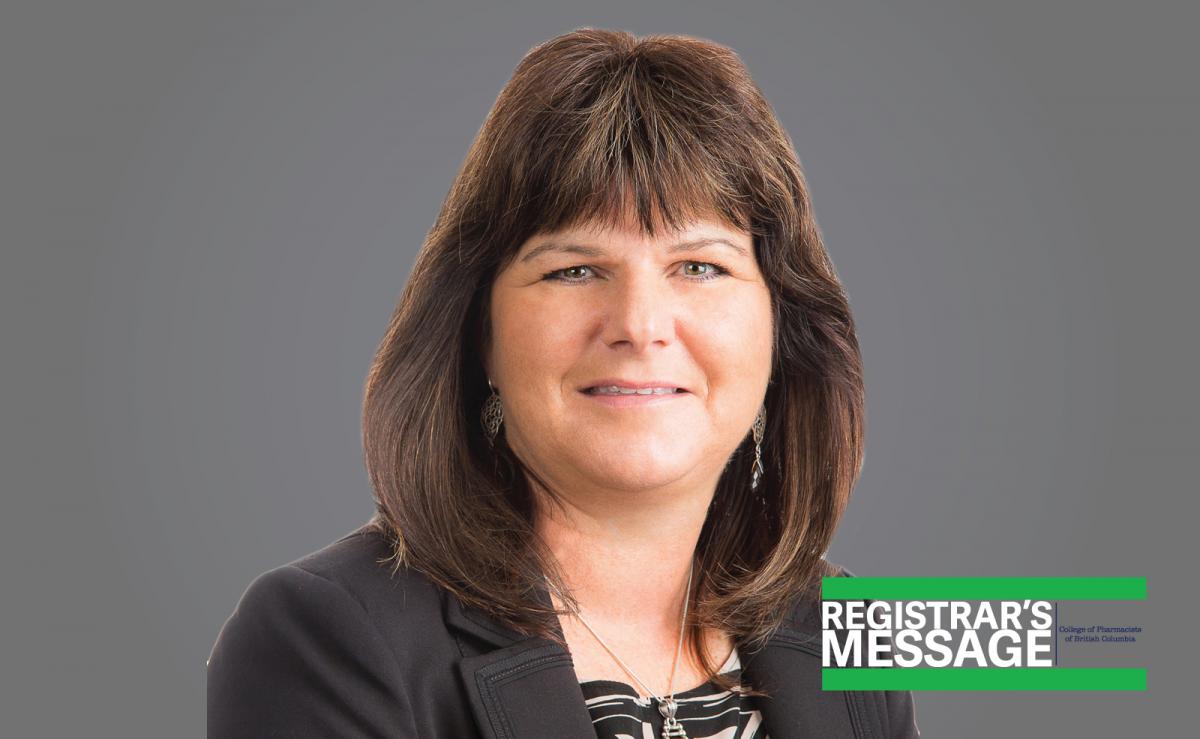Message from the Registrar and CEO: Reconciliation is Action
As we approach Orange Shirt Day and the National Day for Truth and Reconciliation, our hearts and minds turn to the Indigenous children who were taken from their families and placed in residential schools, many of whom never returned home. It's a day for deep reflection, but it's also a powerful call to action. We need to face the systemic racism and white supremacy that still exist in our healthcare system and commit ourselves to building a future where Indigenous Peoples across Canada receive the equitable, culturally safe care they deserve.
Our Ongoing Reconciliation Journey
We know this is an ongoing journey, and we continue to be guided by the principles and recommendations outlined in documents such as In Plain Sight, the DRIPA Action Plan, and FNHA’s Remembering Keegan. We also understand that we are part of a much larger effort to eradicate Indigenous-specific racism from this country and we are working to do our part.
Though we still have a long way to go, we are making progress. We continue to build on the bedrock initiatives of the past few years such as the adoption of the Indigenous Cultural Safety, Humility & Anti-Racism Practice Standard, and the "What You Can Expect from Your Pharmacy Visit" poster, which is now required in all BC pharmacies. These initiatives remind us of our obligation to provide culturally safe and inclusive care to Indigenous clients.
Our reconciliation journey is far from over. We're actively working to decolonize other aspects of our approach, including a thorough review of our bylaws, policies, and practices to identify and dismantle colonialism. I’m beyond grateful for the guidance and generosity of both settler and Indigenous consultants, Knowledge-Keepers and Elders in this work. Their willingness to share their knowledge and invest their time in our journey is a true gift.
One of our most invaluable partners is Bayja Morgan-Banke from the Toquaht (Nuu-Chah-Nulth) and Secwépemc (Shuswap) First Nations. Bayja’s art has been a consistent thread woven through all of this work, helping us breathe life into our commitment and grounding it in a celebration of the beauty, resilience, and strength of Indigenous Peoples. I am so grateful for her collaboration and look forward to sharing more of her art.
One of the many things I’ve learned from working with Indigenous partners is that being corrected, or told that you need to change, is not a setback, but a gift. It's an investment, ensuring you have the knowledge and understanding to continue this crucial work.
I’ve learned to embrace this guidance with open arms and deep humility, recognizing that this path requires courage, and that missteps are inevitable. What truly matters is our unwavering dedication to reconciliation and our willingness to evolve. The generosity of Indigenous Knowledge-Keepers who choose to guide us, despite the historical and ongoing injustices they’ve experienced within the health system, is a testament to their resilience, strength and kindness. This kindness inspires me, and I hope it reminds us that reconciliation is a journey we must continue to walk together.
Even more recently, I was deeply moved by the Canadian Medical Association's apology for its role in past and ongoing harms to Indigenous Peoples. It's a major milestone in our collective journey towards reconciliation, and I'm truly encouraged by this progress. It serves as a powerful reminder of the urgent need for humility, reciprocity, and accountability across our country's health system. I encourage you to take a moment to read the apology and watch the ceremony at: cma.ca/apology.
Looking Forward to a Better Future for Indigenous Peoples
In just two days, we will have the honour of participating in a Blanketing Ceremony rooted in Coast Salish tradition and protocol. This ceremony marks the official launch of our journey to decolonize our complaints and investigations processes. It's a profound moment for us where we'll call upon honoured guests to bear witness to our commitment firsthand, ensuring that this important work is carried out with the utmost respect, accountability, and transparency. The ceremony itself is a beautiful reminder of how important it is to preserve and share knowledge, and it fills me with so much hope and determination as we embark on this journey together.
This event symbolizes the beginning of a transformative process, one that we hope will lead to safer, more inclusive spaces for Indigenous Peoples within our regulatory framework.
As some of BC's most accessible healthcare providers, pharmacy professionals have a unique responsibility to integrate cultural safety, cultural humility, and Indigenous-specific anti-racism into their practices. On September 30, I encourage you all to reflect on how you can contribute to this important journey. Reconciliation is not a one-time event; it is a daily commitment to learning, growing, and taking meaningful action.
I invite you to visit our webpage on Indigenous Cultural Safety, Humility, and Anti-Racism to explore resources, join the conversation and actively commit to reconciliation every day.
